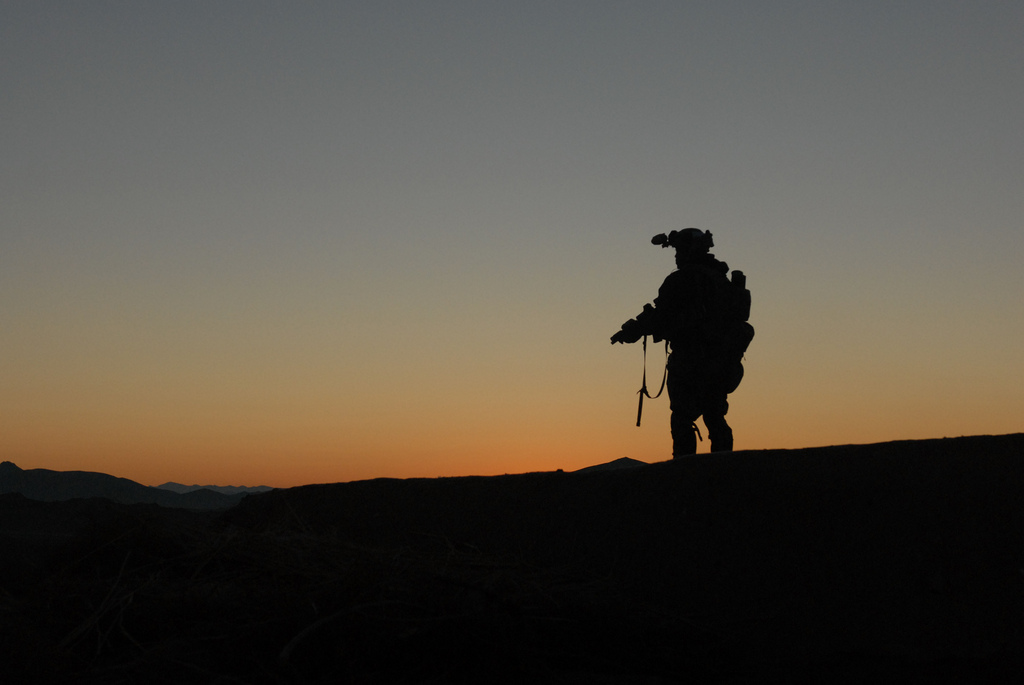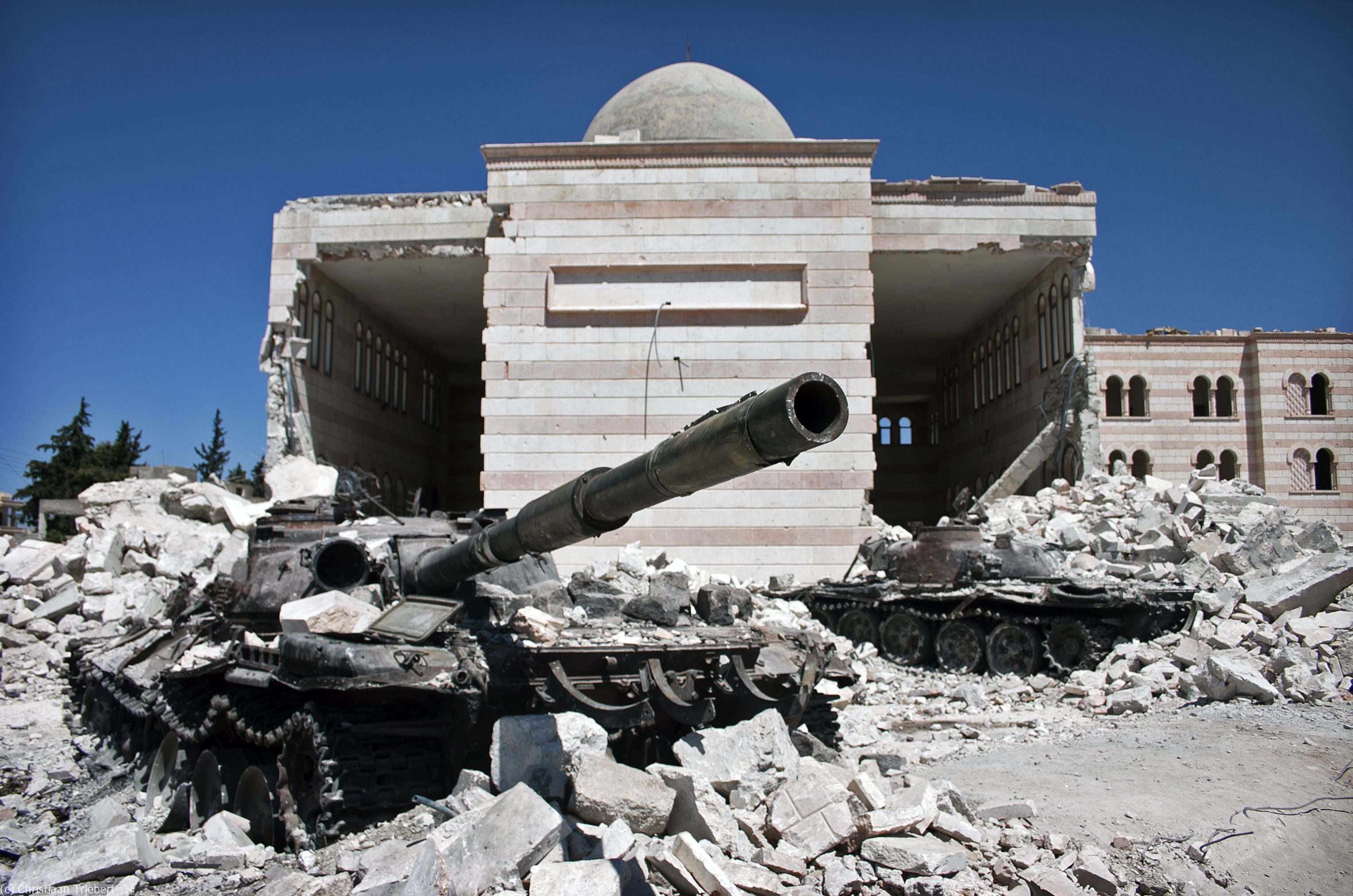By: Bert Thompson
On Saturday, October 5, Americans learned of two covert strikes by the United States government on two separate high profile targets in Africa. One mission was a success; the other was not. In what has become another round in the global game of “Hide and Go Seek,” the U.S. military took strikes against alleged al-Qaeda member and higher-up Abu Anas al Libi in Tripoli, Libya and a militant leader of the group Al-Shabaab in a seaside villa south of Mogadishu, Somalia. The Islamist militant is suspected to be Mukhtar Abu Zubayr, who helped the group plan and carry out the deadly Westgate shopping mall attack in Kenya in Sept. 2013. The Tripoli snatch-and-grab attack execution was near perfect, while the Somalian-raid was far from flawless.
These two raids support and refute a growing sentiment within the United States government of the Special Operations Forces (SOF): these elite warfighters provide the answer to overseas problems that do not merit a large-scale military conflict or are too sticky for diplomatic negotiations. President Barack Obama’s renewal of the limited force doctrine stands firm, demonstrated by the Obama Administration’s willingness to carry out two separate attacks in two lawless African countries in the midst of a government shutdown.
The United States Special Operations Forces are held under the umbrella organization of U.S. Special Operations Command (SOCOM) and are consisted of: Army Special Operations; Naval Special Warfare; Air Force Special Operations; Marine Corps Forces Special Operations; and Joint Special Operations Command (JSOC). Even in times of fiscal contraction (or government shutdown), SOCOM is given increased funding, as well as new authority and new roles both at home and abroad. This is thanks to SOF units fitting in cleanly with former Secretary of Defense Rumsfeld’s plan to create a leaner, more agile fighting force capable of taking on post-Cold War threats. The commander of SOCOM, Adm. William H. McRaven, told the Senate Armed Services committee, “On any day of the year you will find special operations forces somewhere between 70 and 90 countries around the world.”
The most famous of the SOCOM (and more specifically, JSOC) units are the elite SEAL Team Six of the Navy and Delta Force of the Army, and these two forces have found their way into pop culture. Delta Force has been immortalized in a 1986 Chuck Norris movie of the same name and in the Call of Duty series of video games. SEAL Team Six – which has enjoyed special renown since its takedown of al-Qaeda founder Osama bin Laden in May 2011 – has found its name under siege. Following the raid on bin Laden’s compound in Abbottabad, Pakistan, the Walt Disney Corporation attempted to trademark the name “SEAL Team 6,” but eventually withdrew their application in order to allow the Navy to trademark it. The unit also gained fame through the 2012 box office success Zero Dark Thirty, which depicted the Abbottabad raid.
At first glance, Special Operations Forces do seem to be the perfect answer to certain issues. Libya, for instance, currently epitomizes a power vacuum; the government and militias vie daily for influence and authority. How else can an observer explain the ability of militias to storm Libyan Prime Minister Ali Zeidan’s office one day, and then kidnap him from his luxury hotel room a few days later? Known and wanted terrorists like al Libi walk the streets of Tripoli daily, but there is little to no government in place to clean up the streets. In the minds of American leaders, Libya presents the perfect situation in which to use SOF operations.
A “perfect storm” of sorts arose on October 5, allowing the US government to approve and carry out the twin strikes on Tripoli and Somalia. Factors included: the lack of governmental control in the two countries; the track record of the Special Operations Forces in similar raids, chiefly that of Abbottabad; and the recent popularity and support of the Special Operations Forces in government circles stemming from its major successes. Despite the hopes of US government leaders, however, a perfect storm does not guarantee a success. US leaders need to remember that the Special Operations Forces are not a “magic bullet” that can solve all foreign problems. They need to remember that failure is always an option.
Historically, the Special Operations Forces have not “won” every skirmish, every raid, or every battle. Take, for instance, one of the most widely documented failures in US military history, the 1993 ambush in Mogadishu, Somalia. Most famously portrayed in the movie Black Hawk Down, the 75th Ranger Regiment of the United States Army, Special Operations Command, suffered 18 losses and 84 wounded soldiers. It is important to note that the Rangers had many successes in 1980s and 1990s, from the assault on Grenada to several still classified missions in the Persian Gulf, but their history is not spotless.
October 5 was a reminder for US leaders that failures can and will happen, even alongside success. The challenge then becomes to lessen the possibility for failure. It is impossible to eliminate failure, but it is possible to better prepare for it. From faulty intelligence to bad weather, the catalyst for failure is ever changing, as must be the search for solutions. So while Secretary of State John Kerry says that terrorists “can run but they can’t hide,” American leaders should think of all options before committing the Special Operations Forces to a mission, so long as they fear the possibility and ramifications of failure.


